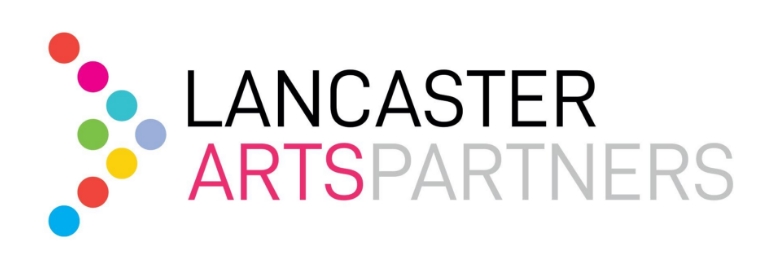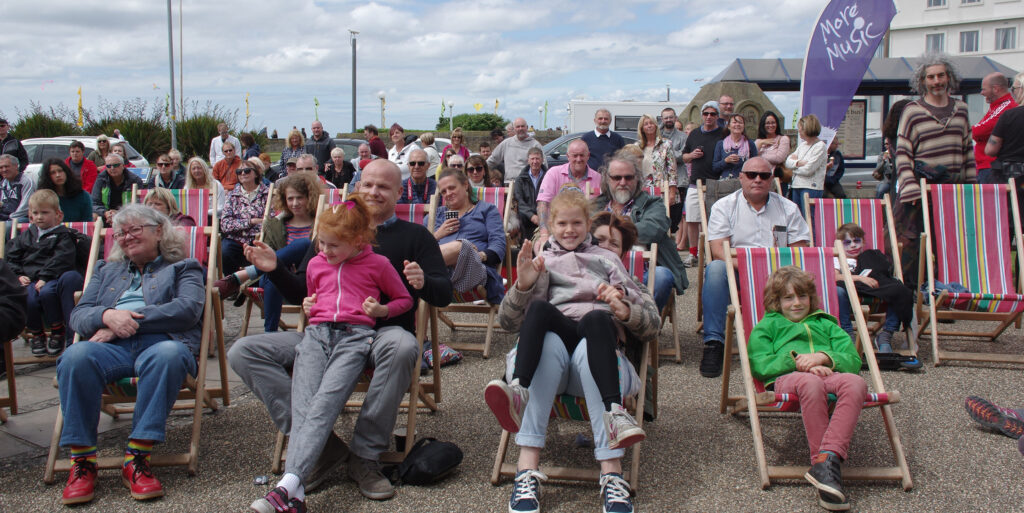
In 2013, the (then) 6 members of the Lancaster Arts Partnership (LAP) came together and created 20:20 Vision a seven-year framework for the arts in Lancaster District. The framework encapsulated the joint vision of LAP, Lancaster City Council and Lancashire County Council for the next 7 years. It was developed in consultation with the whole local arts community. This included individual artists, freelancers, producers, professional, amateur, voluntary and community organisations, as well as the bodies tasked with creating the overall economic vision for the area. Every year since then, we have gathered together in an informal way to review progress, discuss the current state of the arts, and look ahead to the next year. In 2020 those 7 years came to an end, but owing to the pandemic we were unable to meet and finally review those 7 years.
This year, one year late, and now at 21 members, we gathered again to have some fun, to network and to discuss 20:20 vision, what may follow from it and the current shape of culture in the district. The Gathering took place on Tuesday, Nov 23, and being acutely aware of the pandemic situation, we decided to hold the meeting both live, at More Music in Morecambe, and simultaneously online.
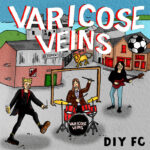
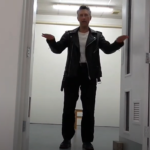
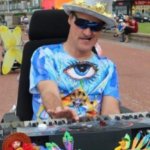
Entertainment for the night was provided by the marvellous Steve Varden, local punk trio Varicose Veins and Anthony Padgett, who led everyone in “The Art Gallery Dance”.
The event was led by Karen O’Neill and Julie Brown, the current co-chairs of LAP and outgoing chair Jocelyn Cunningham, and local Freelancer Steve Fairclough assisted. Local artist Jack Knight kept visual minutes of the discussions and photographer Darren Andrews was there to capture it all on film.
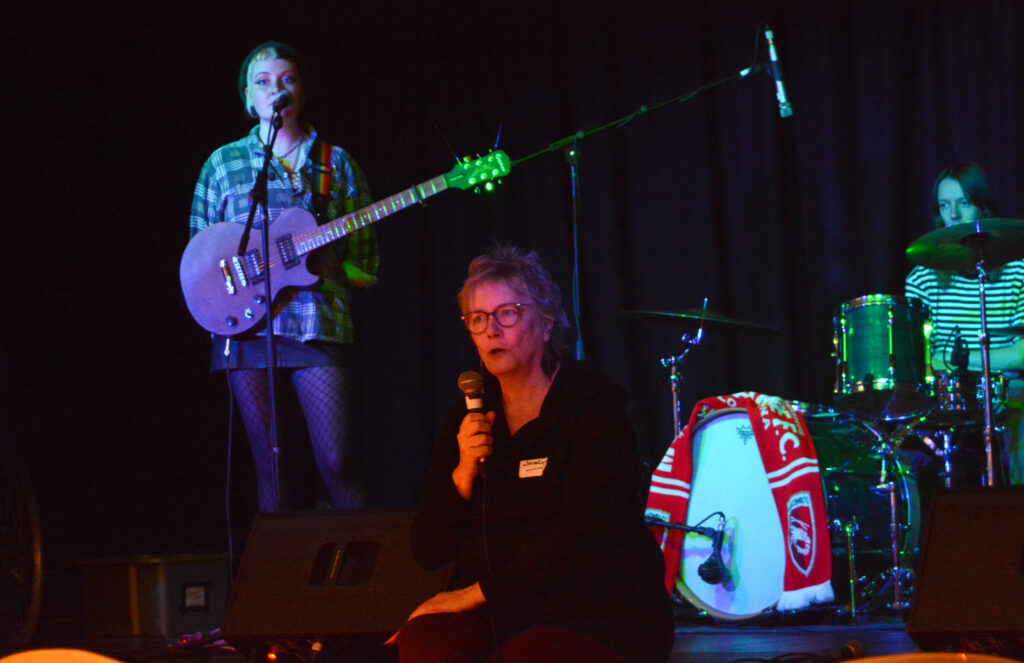
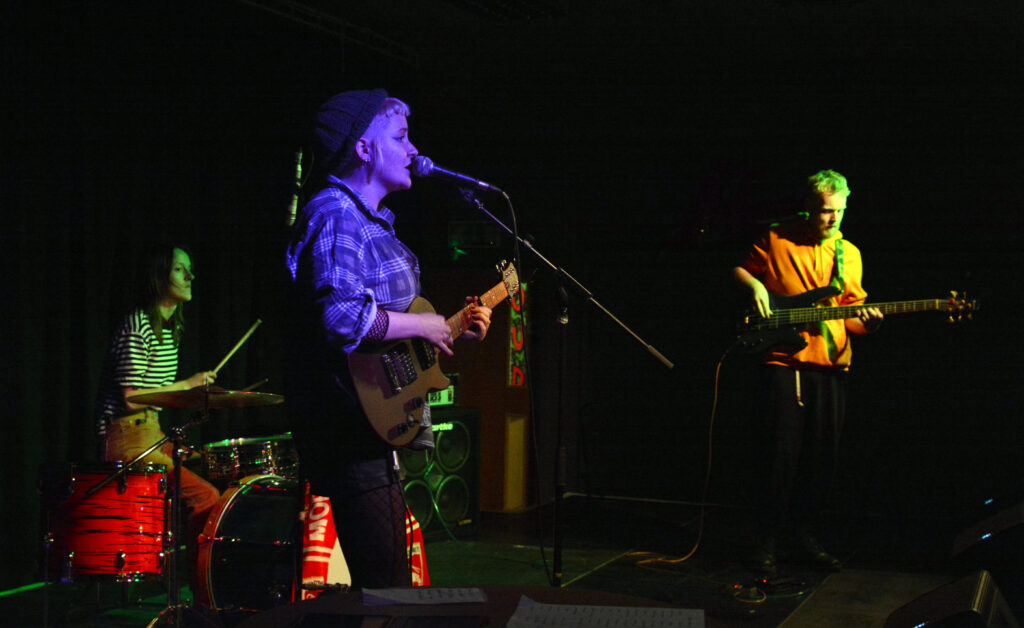
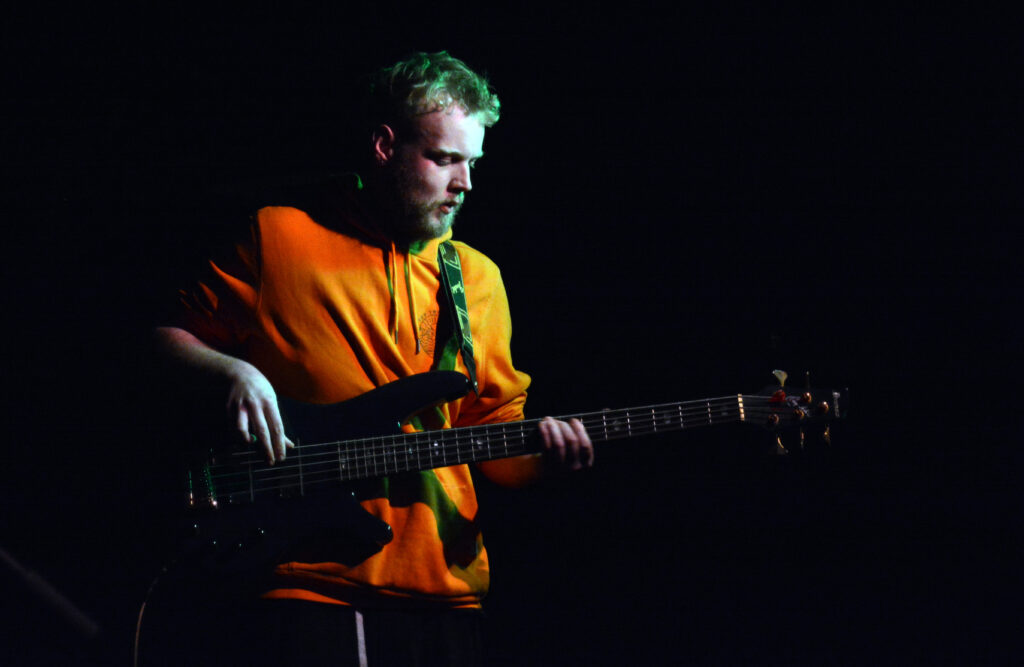
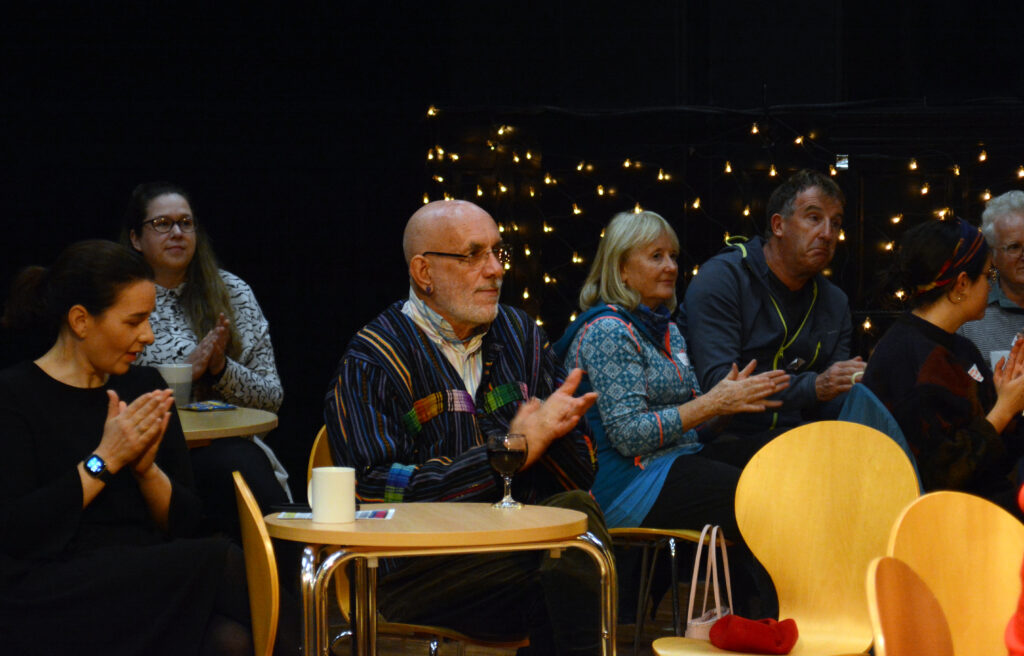
The evening discussions began with a mapping exercise to take a snapshot of the current cultural scene in the ‘city’ (Lancaster), ‘coast’ (Morecambe and adjoining towns), ‘Carnforth’ and ‘country’ (the surrounding rural area).
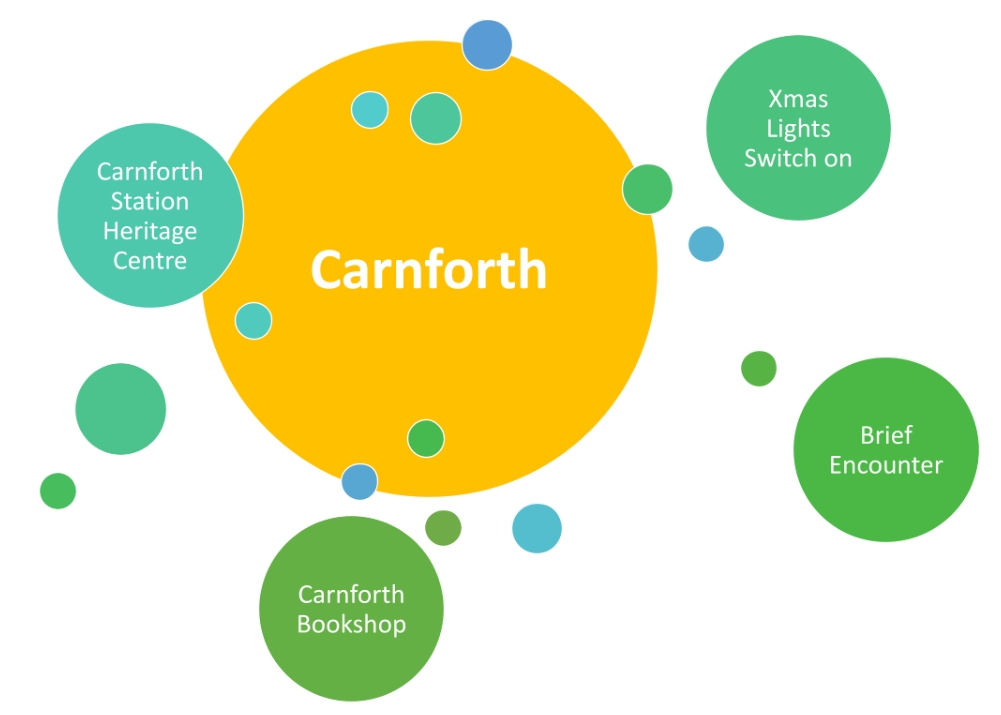
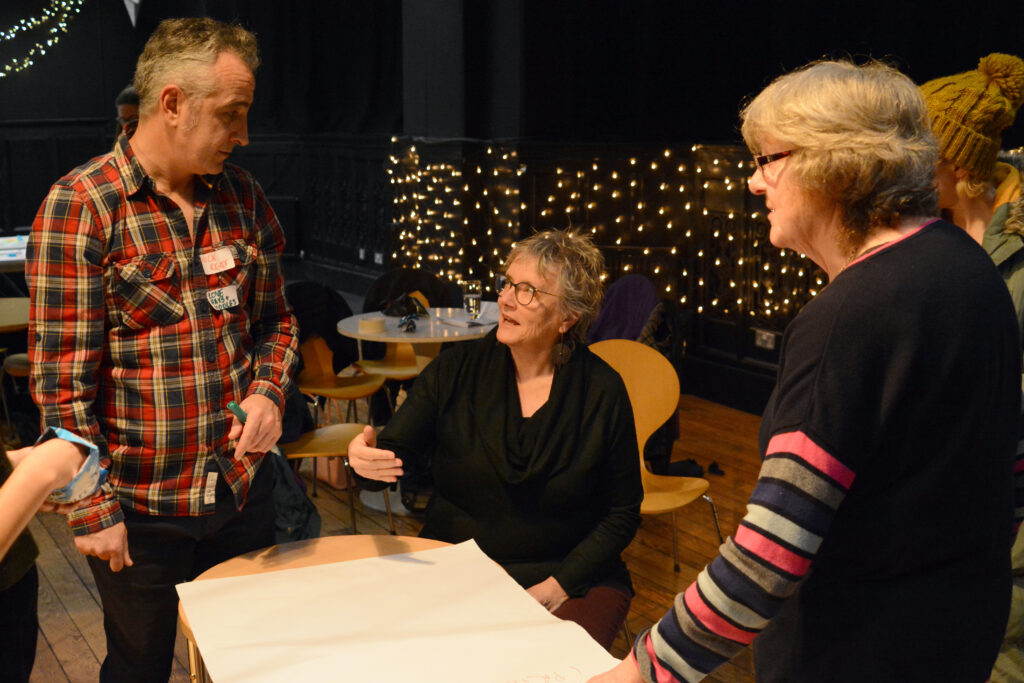
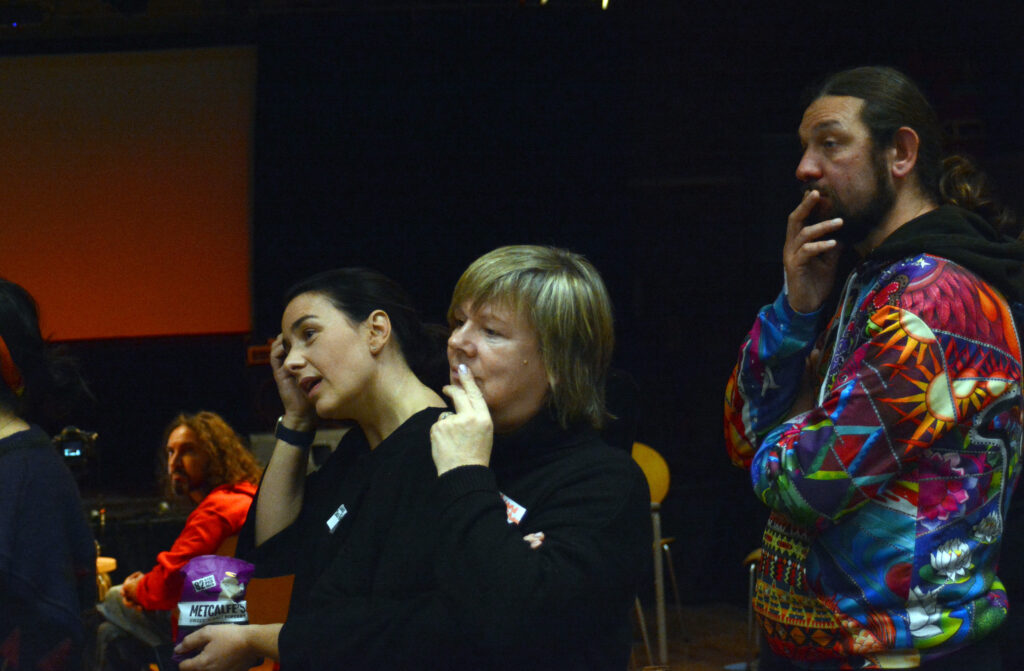
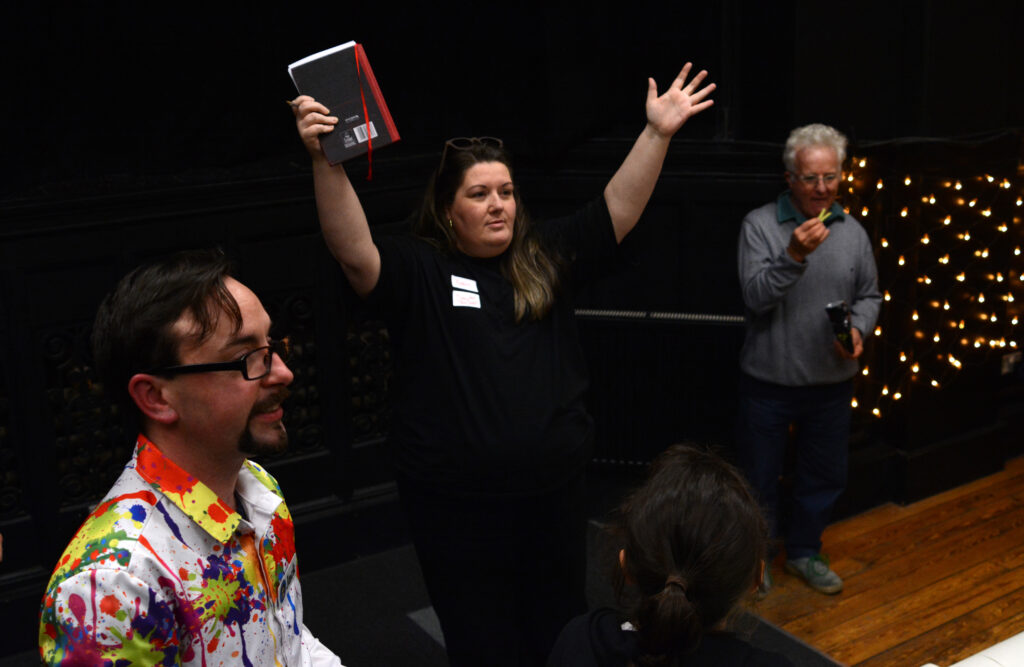
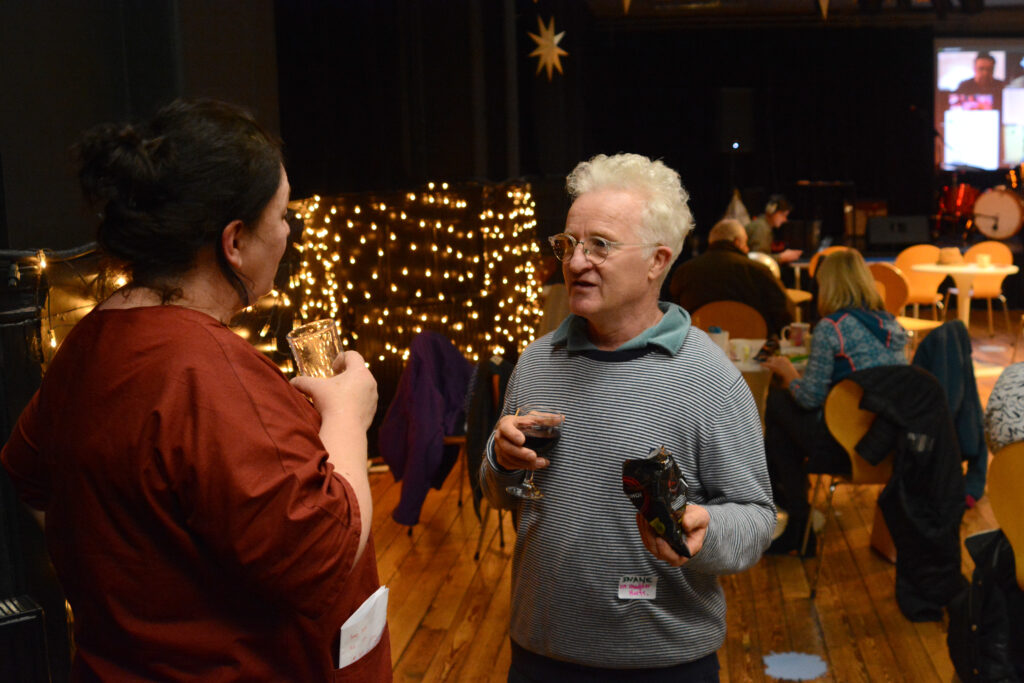
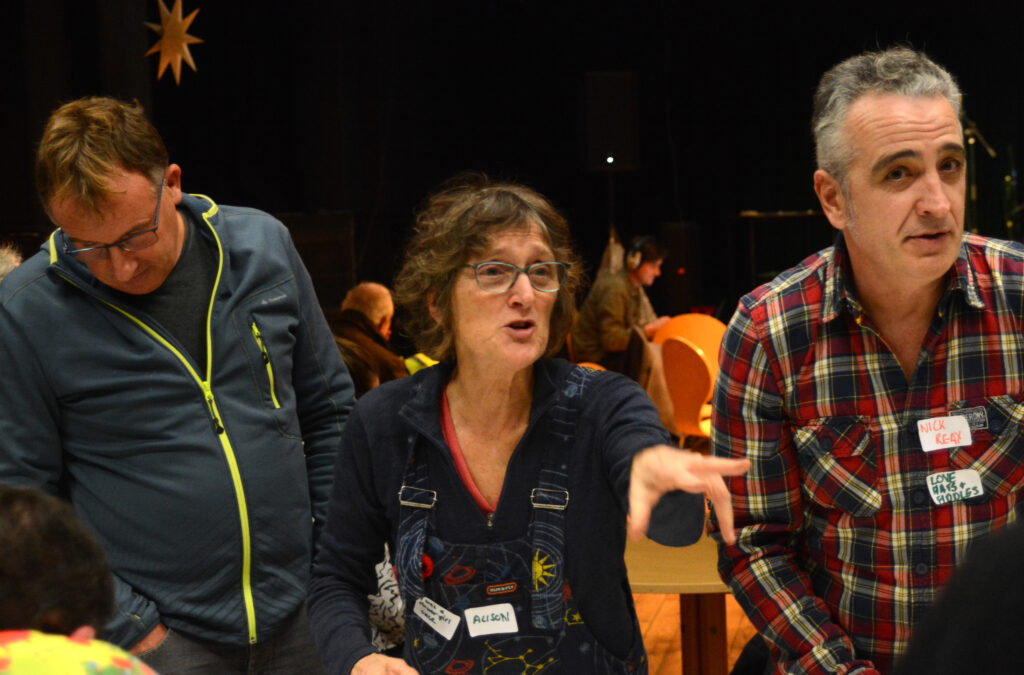


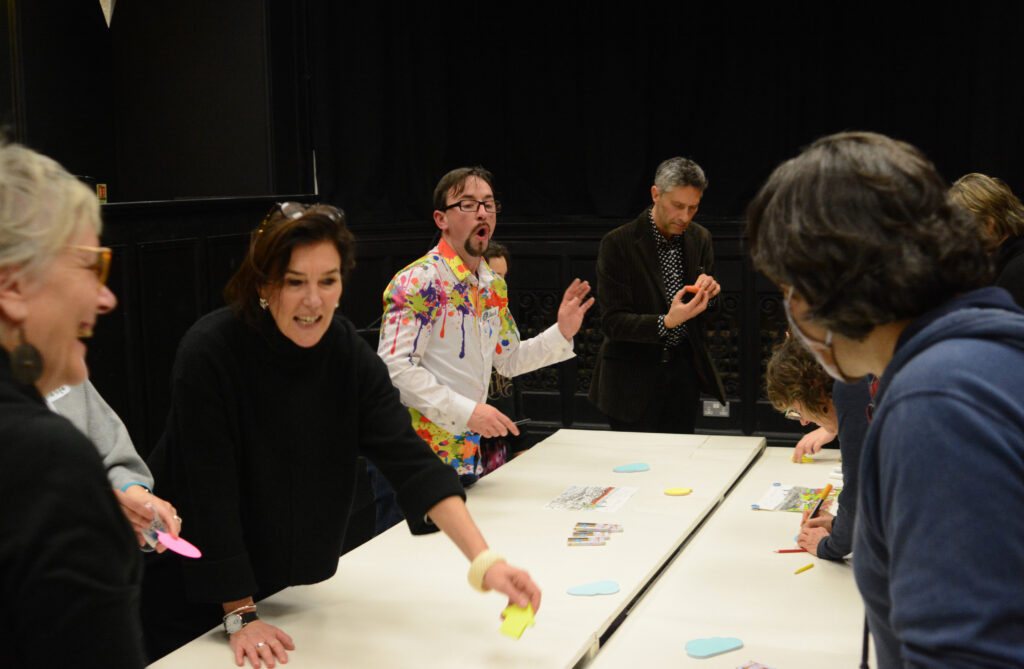
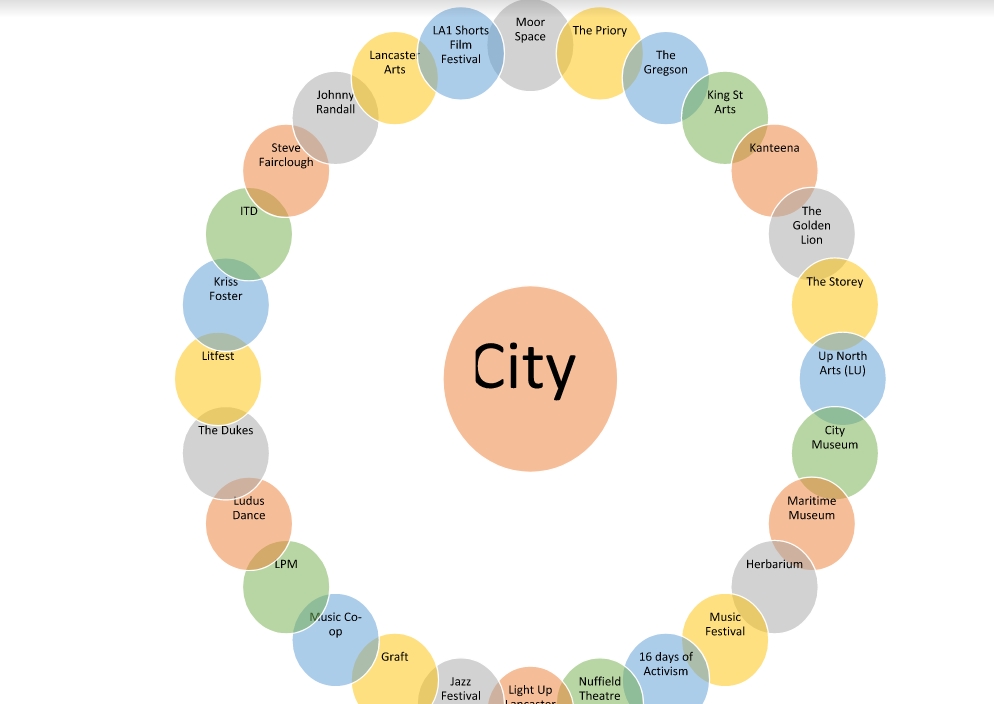
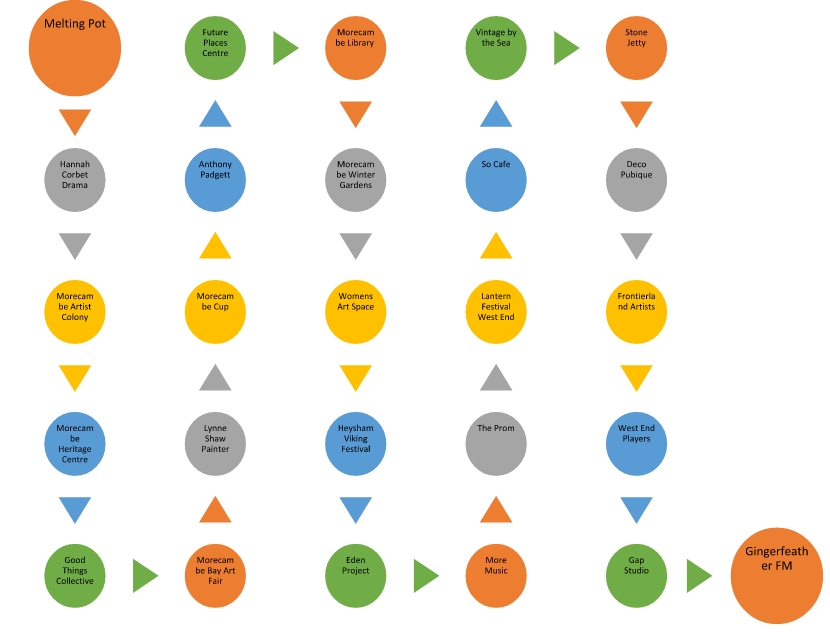
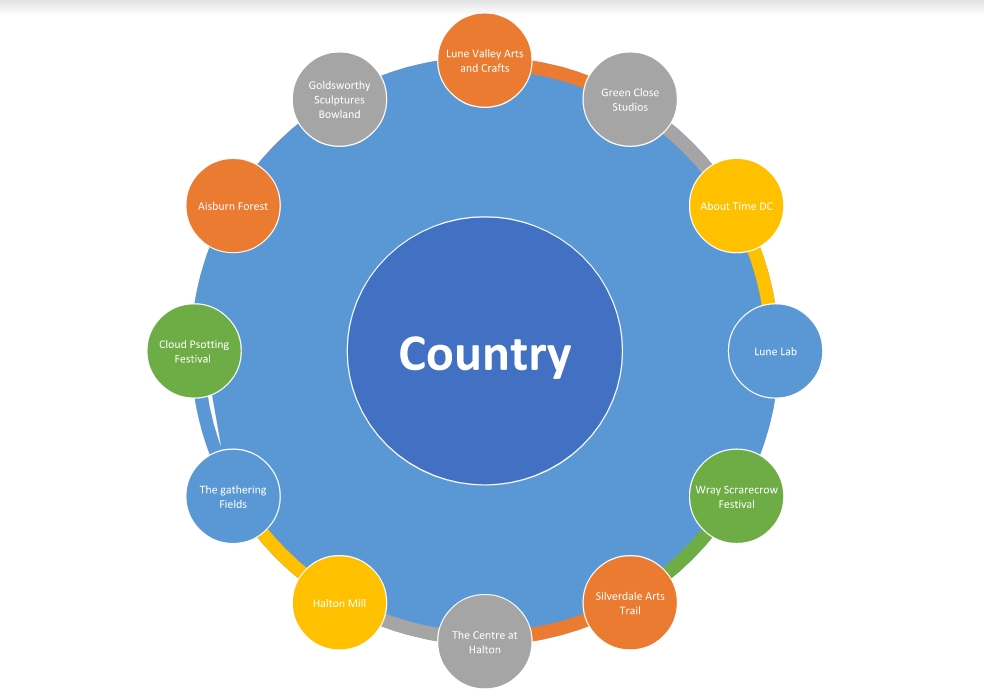
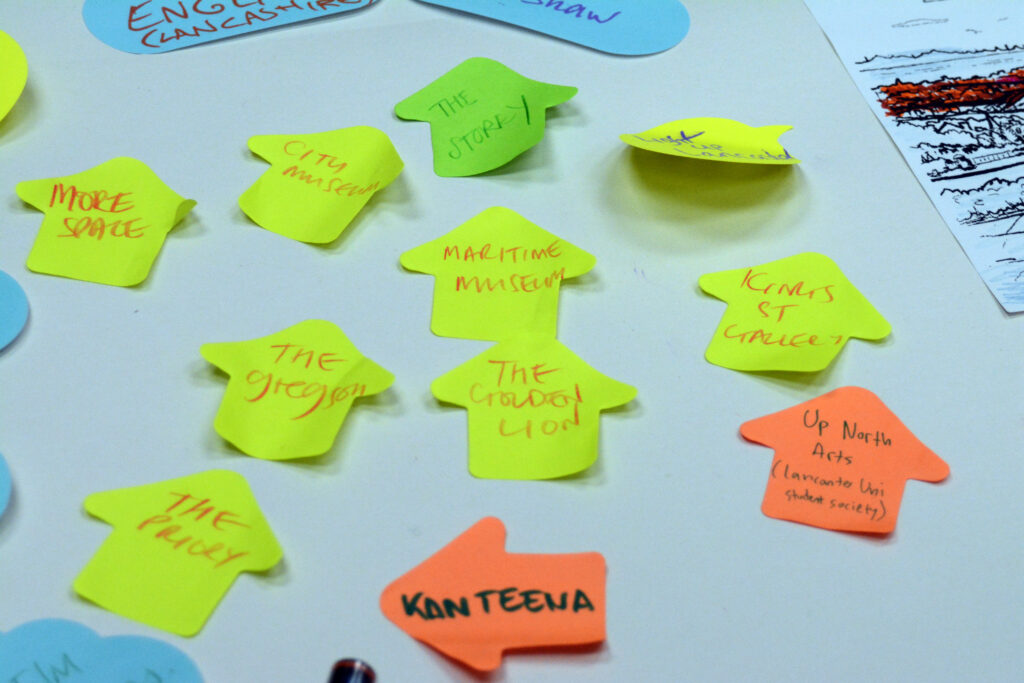
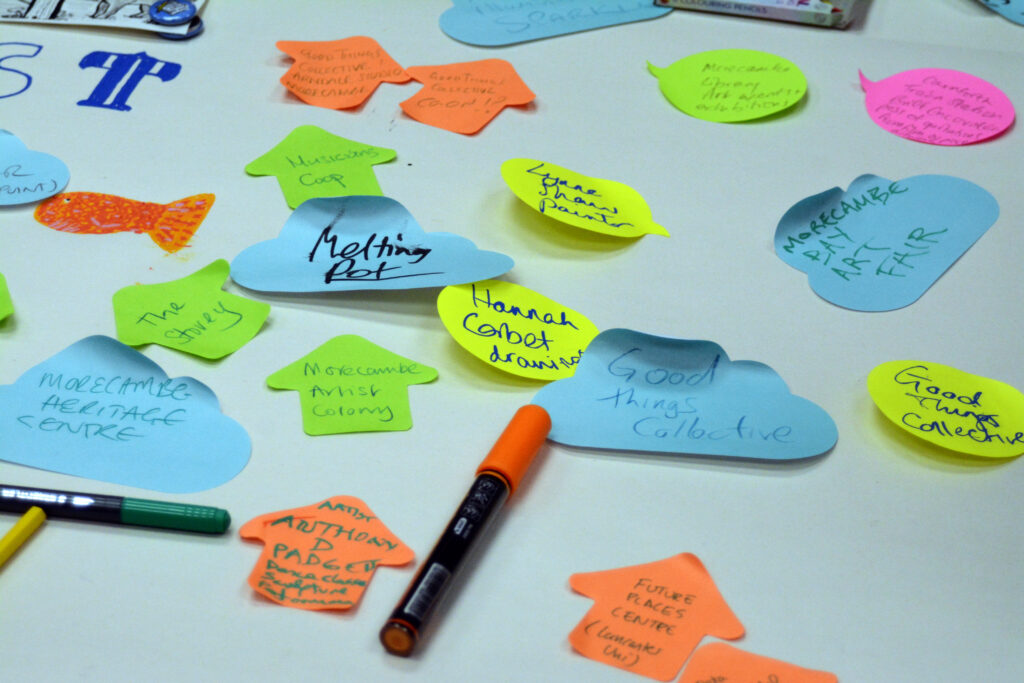
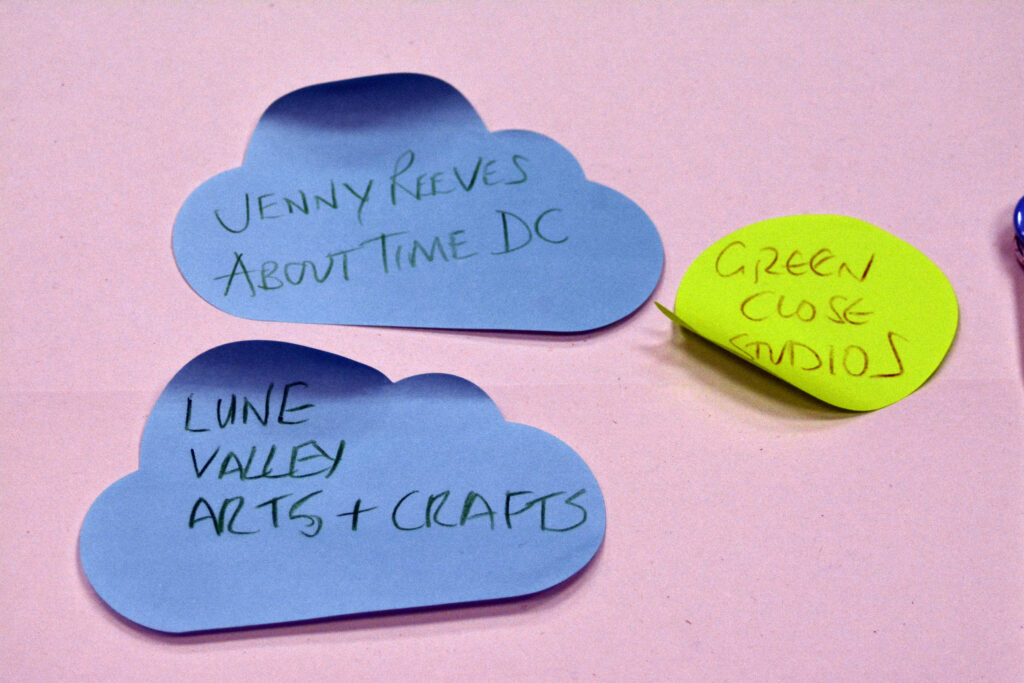
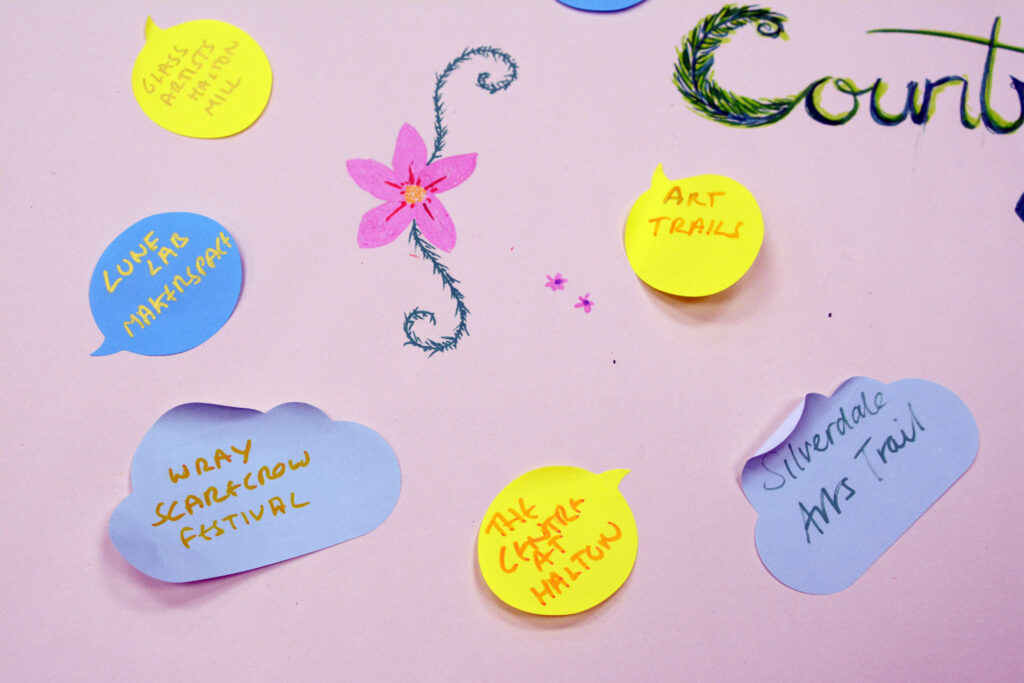
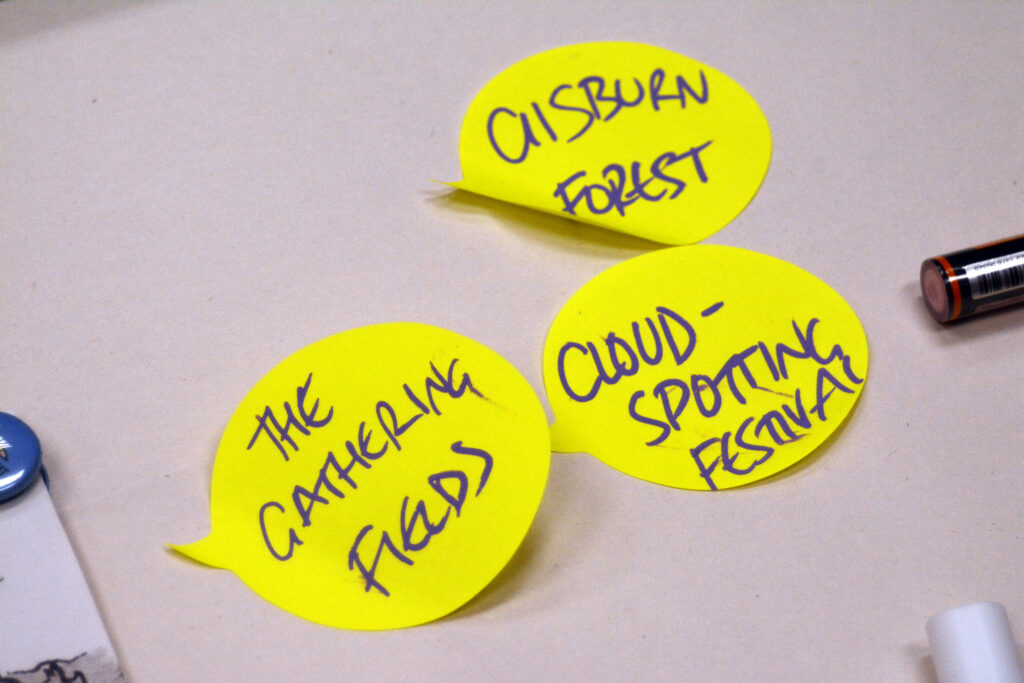
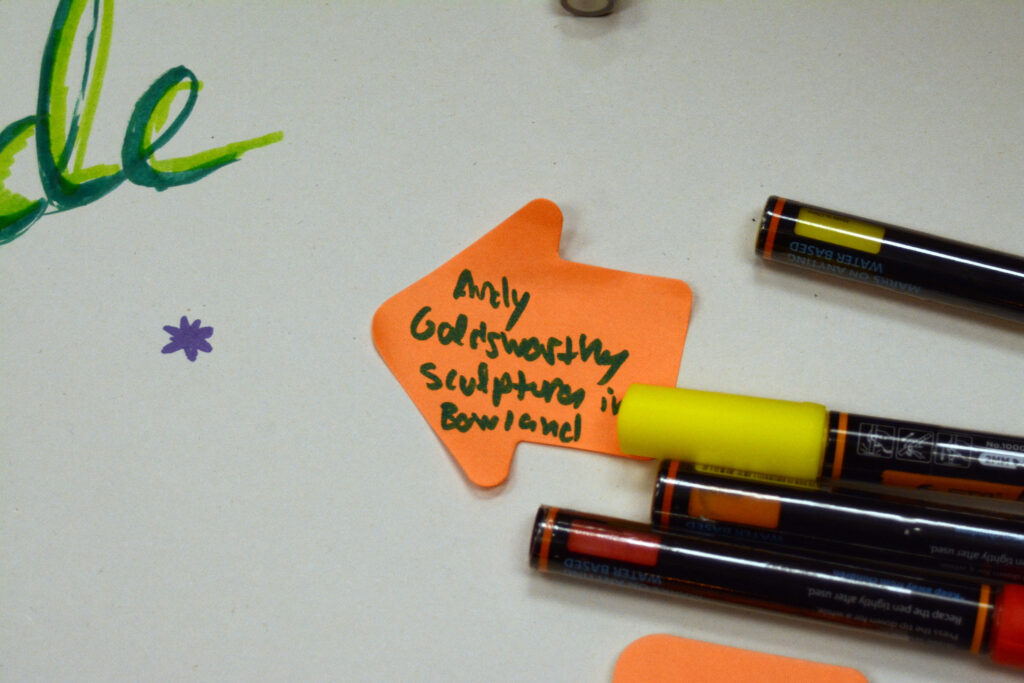
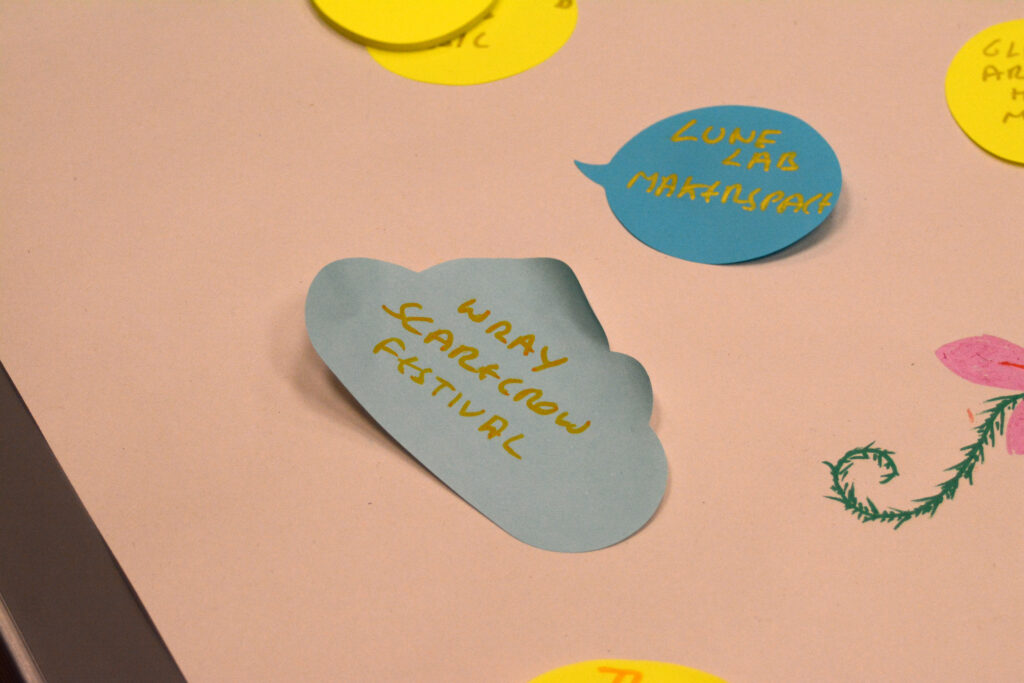
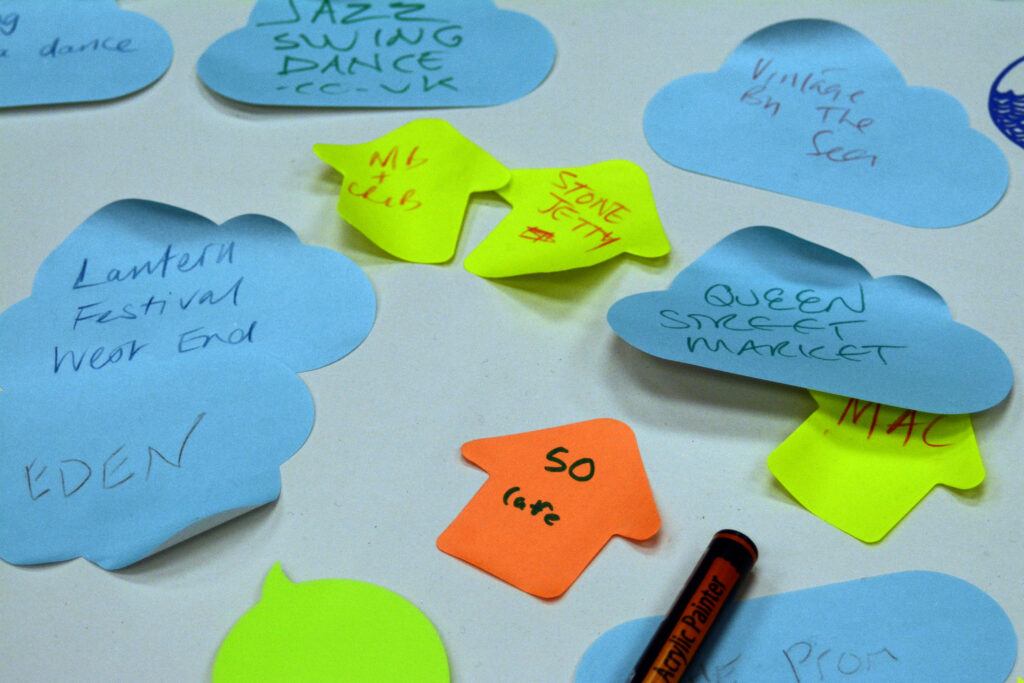
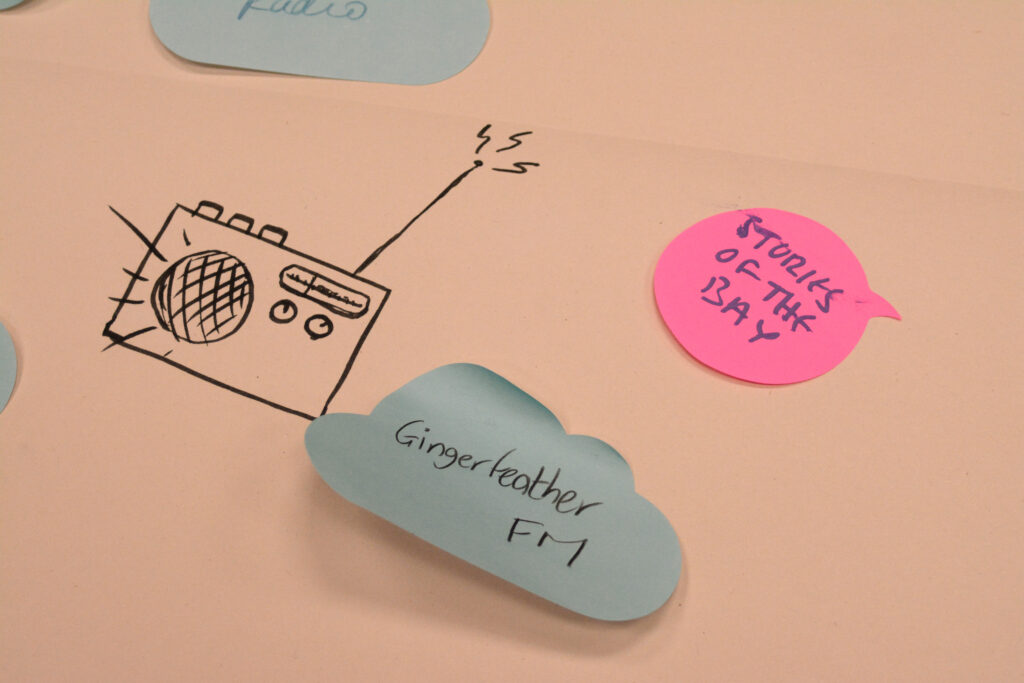
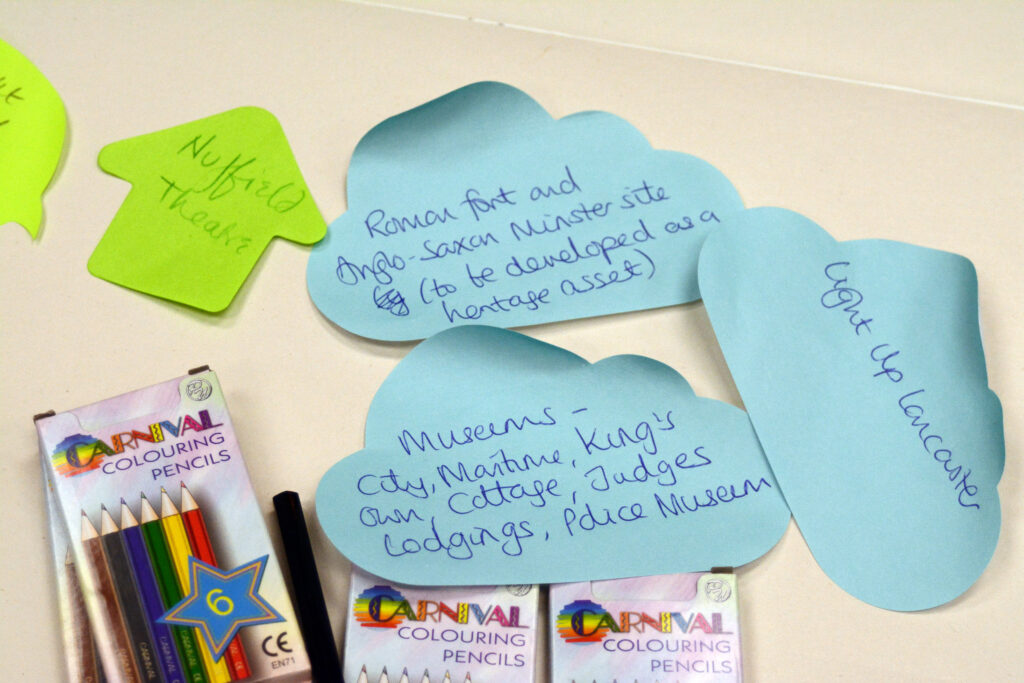
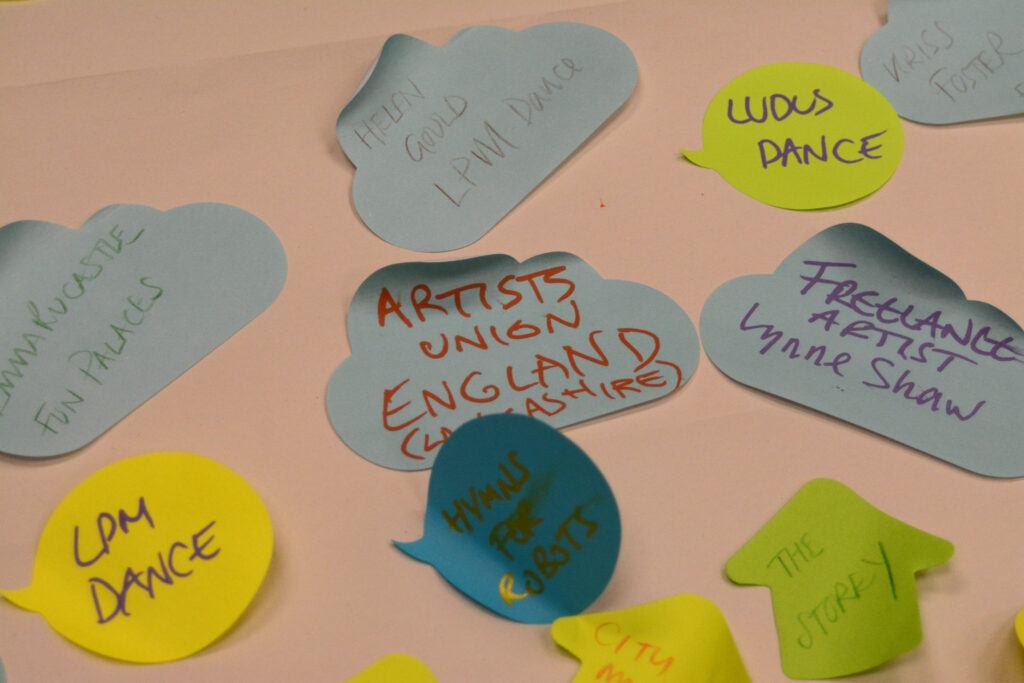
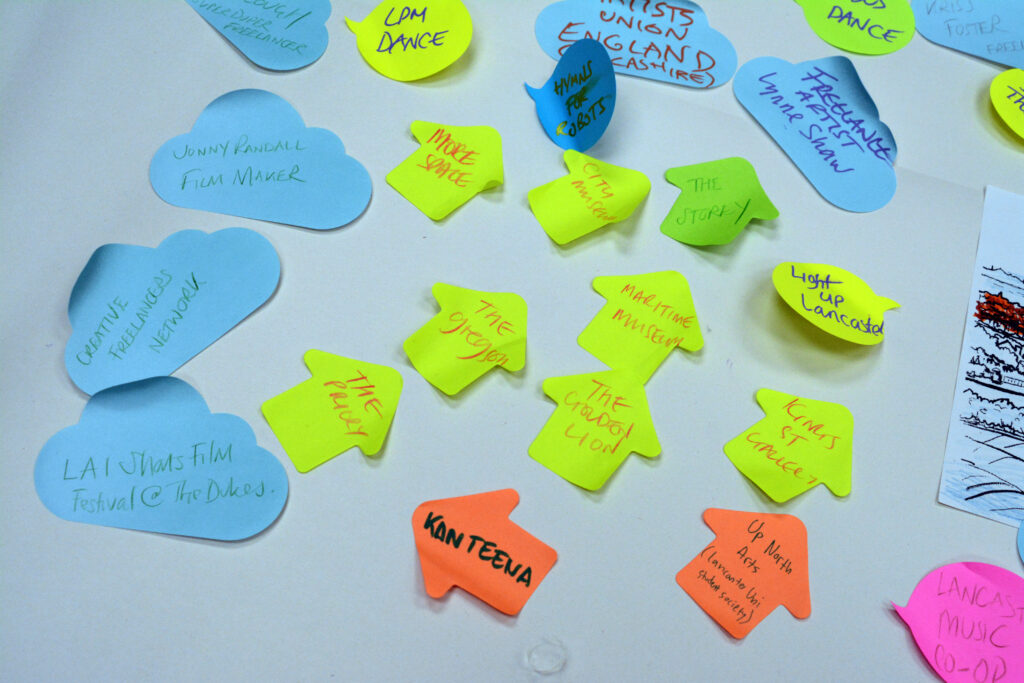
to this was added the suggestions of the online group…
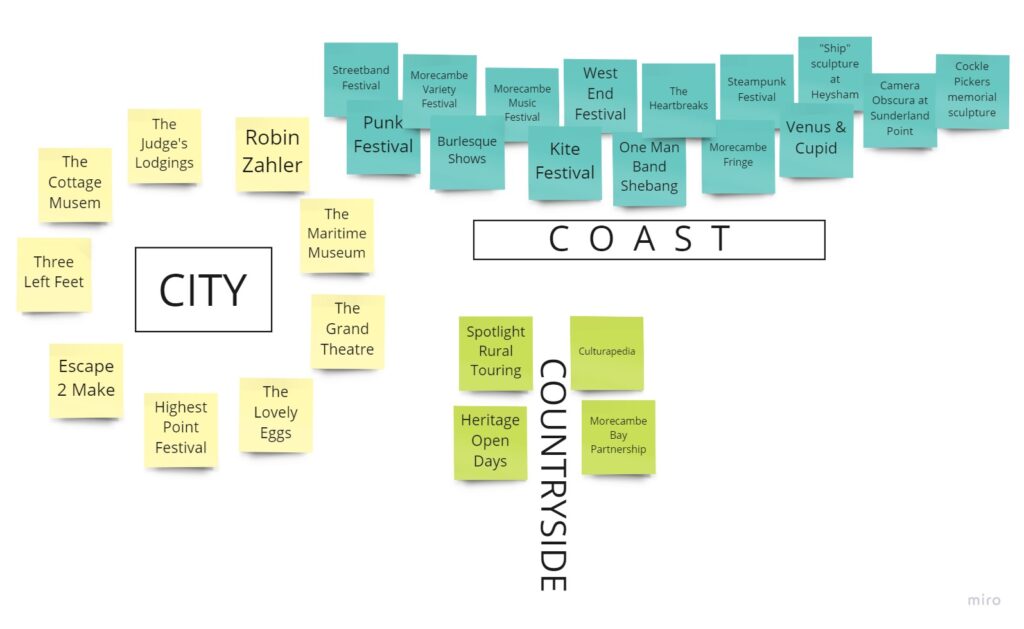
This was followed by group discussions of what we would like to be the scene in 10 years from now…
PARTICIPATION
In 10 years…
People will feel that they have a rich variety of opportunities to participate in culture.
- Discussion around What Is Culture?
- Effective engagement of young people
- Community involvement – festivals, those harder to reach, artistic, geographical
- Consultation and co-design / co-creation
- Effective communication – use everyday language (it’s too easy for arts organisations to use funder-speak)
- Collaboration and partnerships: Council, education, arts, health, community, youth organisations, businesses – when we work together participation is more authentic
- Places and spaces – infrastructure. Some people might think certain spaces are ‘not for them’, so how do we open up our spaces – let people know about them. And utilise other (less threatening?) spaces
PEOPLE
In 10 years…
A creatively confident, strong and connected community without borders.
- Consultation & recruitment prior to Festivals etc –
- Participation, Skills share, Opportunities for people to approach the creative events and join in
- Workshops to attract people – people (artists) without ‘qualifications’ need to be able to respect the skills they have to offer.
- Better communication through the district – small groups could connect better, across the district (similar activities, all needing funding, better joined-up approach, pool resources, pool bids?)
- Easy to approach other connections – freelancers & organisations – making it easier
- Training – support and connecting
- to the uni
- to young people
- to integrated work (integrated ages / intergenerational)
DISTINCTIVENESS
In 10 years…
Our distinctiveness is in how we act as a harbour for the development of arts and culture, anchoring (and retaining) talent here.
- We asked ourselves what are the future influences to which the answer was the Eden Project. In the light of our topic – Pride and Distinctiveness we felt there is a lack of recognition of our own distinctiveness in discussions re the Eden Project – as if their artistic output was superior to our own. Are we at risk of being marginalised by this new brand in town? Do they see us as equals or are they just going to do some token hiring to meet planning requirements?
- So this led us to develop two themes:
- the need to broadcast (foghorn) our distinctiveness
- while continuing to provide an inclusive/nurturing approach for supporting and cultivating new talent (a harbour)
ECONOMY
In 10 years…
Culture should be recognised as a vital part of the local economy
- A better understanding of financial impacts and ROI
- High street re-imagined with culture as part of the thriving offer – as the anchor
- Culture to play a part in forming/facilitating international partnerships
- Premier music venue and festivals/events – in North of England, to rival national and international others, benefiting the local economy
- A percentage of could tax (or other) to support arts schemes
- Educating HCPs (health care practitioners?) trained re the value of the arts and culture
- A cross-sector ‘board’ / steering group with culture at the centre.
ONLINE TEAM
In 10 years…
We want to be the leading area in the UK for environmental art.
and
In 10 years time, Morecambe will host an international film festival with a giant screen emerging from the bay
Visual Minutes by Jack Knight:
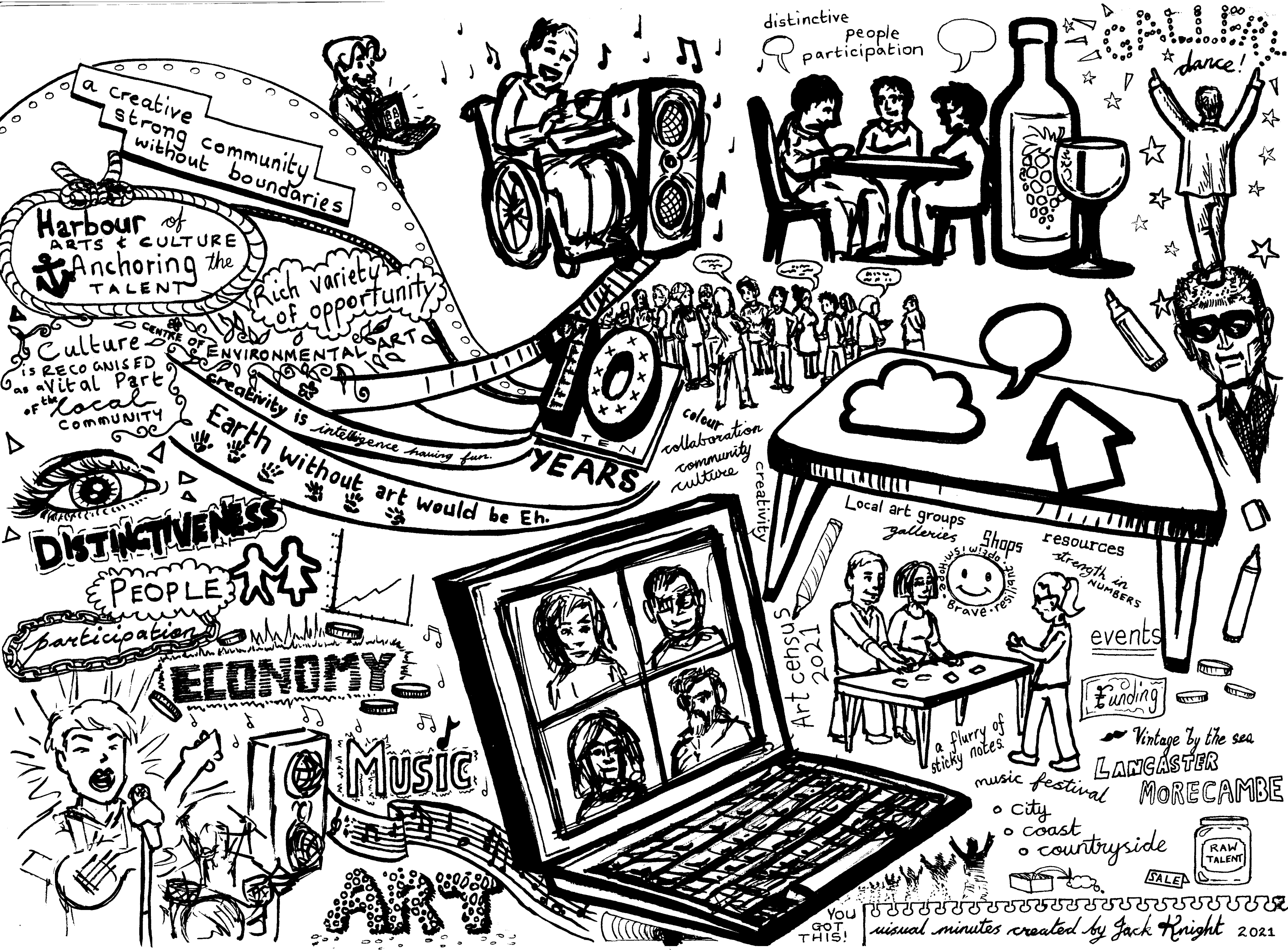
The night finished with some speed dating, a super quick opportunity for freelancers to put faces to organisations and vice-versa!
Loved the speed dating. Great way to get to know people when you’re more reserved. Exchanged contacts with a few from this.
If you haven’t yet left your feedback on the Annual Gathering, there is still time. You can do so here: https://forms.gle/7TvA5VgZEBd3MBKm7
